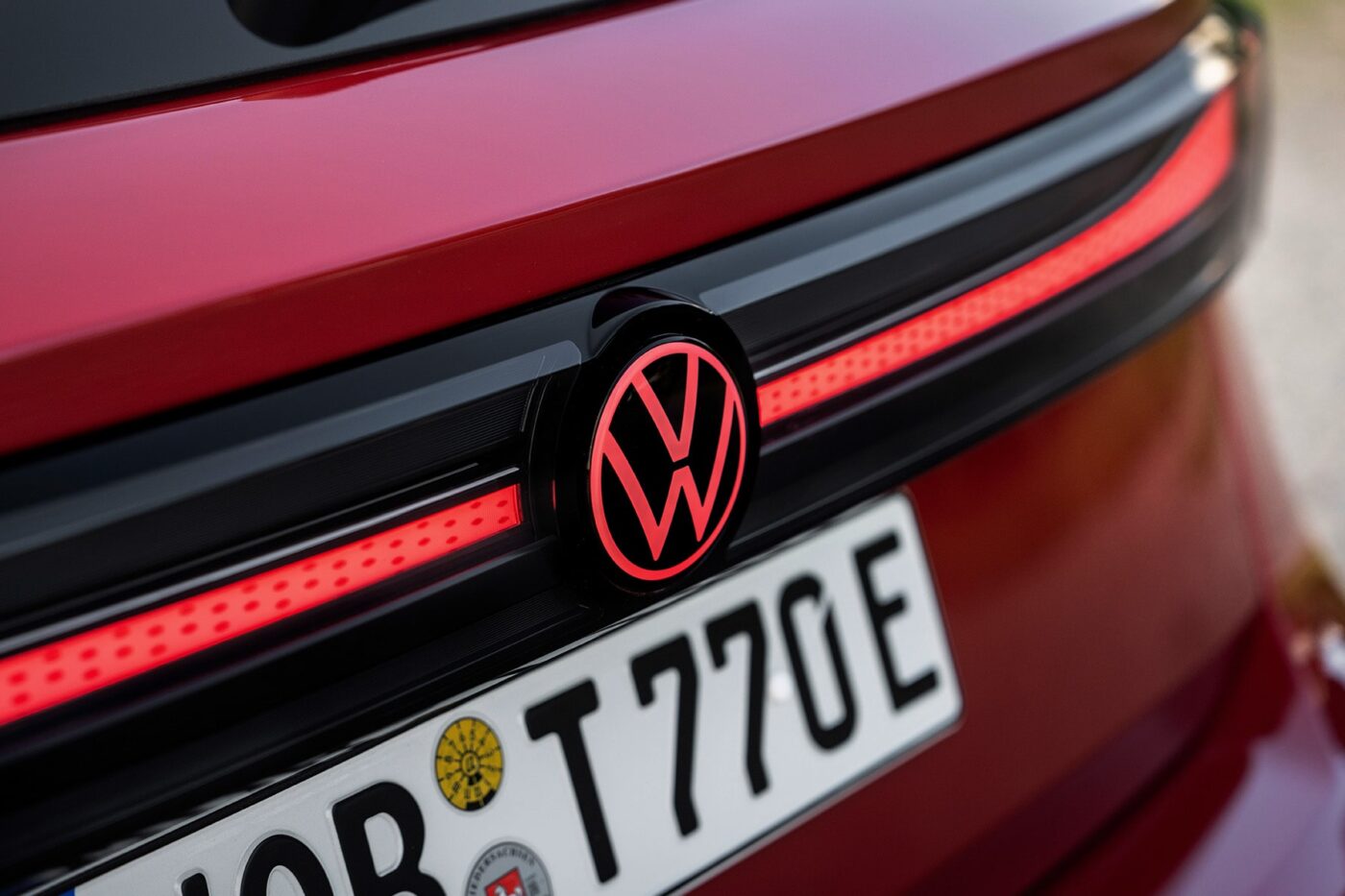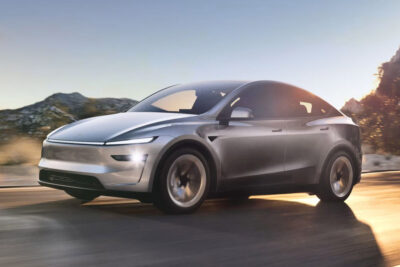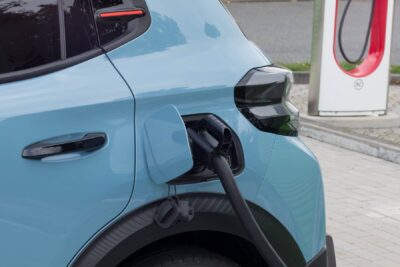2024 balance sheet: Volkswagen Group sells fewer electric cars
In 2023, the German company was still able to increase its electric car deliveries by around a third to 771,100 fully electric vehicles at the time. Volkswagen was not quite able to reach this level in 2024; the 744,800 electric cars represent a decline of 3.4 per cent.
Across all drive systems, the multi-brand group delivered 9.03 million cars worldwide last year, 2.3 per cent down on the previous year. At 8.3 per cent, the BEV share of total sales is therefore on a par with the previous year. However, there has been a regional shift in electric car sales: In China, Volkswagen was able to increase its deliveries of BEVs by eight per cent, whereas in the US they fell by 30 per cent. Volkswagen also sold fewer electric cars in Europe but was able to maintain its position as European BEV market leader with a market share of 21 per cent.
| Q4 2024 | Q4 2023 | Delta (%) | 2024 | 2023 | Delta (%) | |
|---|---|---|---|---|---|---|
| Europe | 154,600 | 131,300 | +17.7 | 447,900 | 472,400 | -5.2 |
| USA | 12,300 | 20,800 | -40.9 | 49,400 | 71,000 | -30.5 |
| China | 59,300 | 74,700 | -20.6 | 207,400 | 191,800 | +8.1 |
| Rest of the world | 12,100 | 12,700 | -5.1 | 40,100 | 35,800 | +12.0 |
| Global | 238,200 | 239,500 | -0.5 | 744,800 | 771,100 | -3.4 |
It had long been clear that 2024 would be a rather difficult year for the market dynamics of electric cars. In Germany, the discontinuation of the environmental bonus subsidy had a strong impact on sales, and even in Europe, manufacturers were not overly interested in selling significantly more electric cars in 2024 due to the CO2 fleet limits – BEVs will become much more important again in 2025 with the stricter limits.
Another positive aspect for VW is the development at the end of the year, as the global BEV share of 9.5 per cent in Q4 was well above the annual average. And: the BEV order backlog in Western Europe stands at around 170,000 vehicles, 88 per cent more than a year ago. This is being driven by new models such as the VW ID.7 Tourer, Audi Q6 e-tron and Porsche Macan Electric, among others, according to the Group.
“In the all-electric vehicle segment, the Volkswagen Group is by far the market leader in Europe. This makes us proud and at the same time spurs us on,” said VW CEO Oliver Blume. This year, we will continue to systematically renew our portfolio and put another 30 new models on the road for our customers across all brands.’
In 2024, however, there were still no surprises among the Group’s best-selling electric cars: The VW ID.4/ID.5 duo was the Group’s top-selling electric model series with 182,000 units, followed by the ID.3 with 149,100 vehicles. The Audi Q4 e-tron (107,700), Skoda Enyaq (79,500) and Cupra Born (41,800) were followed by three other MEB models from other Group brands. The ID.7 (including Tourer) was sold in 40,100 units, the ID. Buzz (incl. Cargo) at 29,900 vehicles. The Audi Q8 e-tron rounds off the top ten (probably for the last time for the time being) with 28,200 units – as reported, the model is taking a break for the time being, as the Brussels plant will be closed by the end of February and production of the model will be relocated to Mexico.
Let’s take a look at the individual brands: The ‘Core’ volume brand group performed slightly better than the Group as a whole, but deliveries here also fell by an average of 1.9 per cent. As reported, the VW brand sold 383,100 electric cars (-2.7%), while the decline at Skoda was at a similar level at 2.6% to 79,600 vehicles – however, the revised Enyaq and the new Elroq are in the starting blocks for the Czech company. Seat and Cupra were even able to increase sales by six per cent to 48,000 electric cars, with the first units of the Tavascan built in China being added to the 41,800 Born. Volkswagen Commercial Vehicles, on the other hand, recorded a slight decline of 1.6 per cent. Incidentally, VWCV itself speaks of 28,700 ID. Buzz, as the market launch volume of 1,300 ID. Buzz for North America was not included – the 29,900 units stated by the Group above, however, appear to include these units (with rounding errors).
In the ‘Progressive’ brand group, however, electric car sales fell by 7.8 per cent – as Bentley and Lamborghini do not currently have any electric cars on offer, this purely refers to Audi’s electric balance sheet. The Ingolstadt-based company sold 164,500 electric cars in 2024, compared to 178,400 units in 2023. The Q4 e-tron accounted for over 100,000 electric cars and the Q8 e-tron for 28,200. The PPE hopeful Q6 e-tron has achieved just under 15,000 deliveries since its market launch in Q3.
| Q4 2024 | Q4 2023 | Delta (%) | 2024 | 2023 | Delta (%) | |
|---|---|---|---|---|---|---|
| Core | 166,300 | 170,500 | -2.5 | 539,500 | 549,900 | -1.9 |
| VW Pkw | 111,900 | 120,600 | -7.2 | 383,100 | 393,700 | -2.7 |
| Škoda | 28,800 | 27,200 | +5.8 | 79,600 | 81,700 | -2.6 |
| Cupra | 16,900 | 13,000 | +29.9 | 48,000 | 45,300 | +6.0 |
| VWCV | 8,700 | 9,700 | -9.8 | 28,800 | 29,300 | -1.6 |
| Progressive | 48,700 | 55,400 | -12.1 | 164,500 | 178,400 | -7.8 |
| Audi | 48,700 | 55,400 | -12.1 | 164,500 | 178,400 | -7.8 |
| Bentley | – | – | – | – | – | – |
| Lamborghini | – | – | – | – | – | – |
| Sport Luxury | 22,700 | 12,700 | +77.9 | 39,100 | 40,600 | -3.7 |
| Porsche | 22,700 | 12,700 | +77.9 | 39,100 | 40,600 | -3.7 |
| Trucks / TRATON | 600 | 900 | -33.8 | 1,700 | 2,100 | -17.2 |
| MAN | 350 | 410 | -15.2 | 740 | 1,090 | -32.4 |
| VWTruck & Bus | 20 | 50 | -53.8 | 120 | 90 | +31.2 |
| Scania | 80 | 60 | +35.1 | 270 | 250 | +8.1 |
| International | 150 | 390 | -60.7 | 610 | 670 | -8.5 |
| Total | 238,200 | 239,500 | -0.5 | 744,800 | 771,100 | -3.4 |
As the ‘Sport Luxury’ brand group only consists of Porsche anyway, the 3.7 per cent decline to 39,100 electric cars is also only attributable to one brand here. The development in the fourth quarter (+77.9 per cent) is positive for the Stuttgart-based sports car manufacturer, where more than half of the annual sales were achieved with 22,700 units. The 40,600 units in 2023 were still achieved exclusively with the Taycan. Despite the facelift at the start of the year, demand in 2024 was rather sluggish, with Porsche delivering 20,836 units of the electric saloon. However, the new Macan has been successively launched on the markets since the end of September and already achieved 18,278 deliveries by the end of the year. By 2025, the Macan will thus be Porsche’s most important electric model series by far.
In the Trucks and Traton brand group, electric sales fell by 17.2 per cent to 1,700 vehicles. MAN was only able to deliver 740 instead of 1,090 electric commercial vehicles in the previous year (-32.4 per cent), while Volkswagen Truck & Bus (+31.2 per cent) and Scania (+8.1 per cent) were up – albeit at a significantly lower level than MAN.
volkswagen-group.com (brand), vwn-presse.de (Volkswagen Commercial Vehicles), porsche.com (Porsche), audi-mediacenter.com (Audi), seat-mediacenter.com (Seat/Cupra)





0 Comments